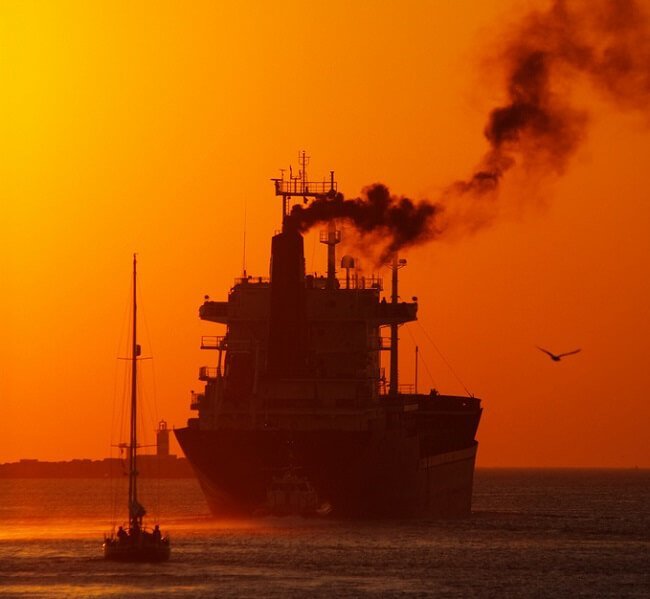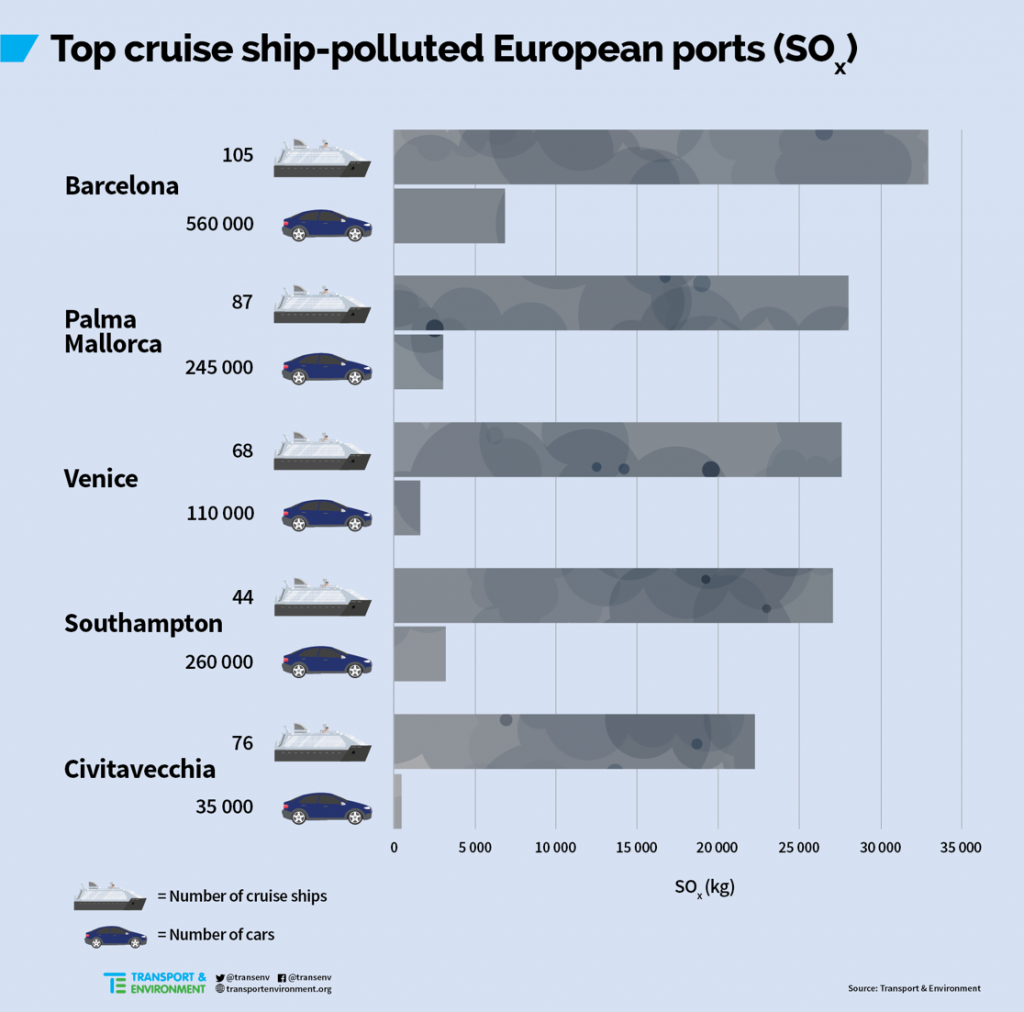
In absolute terms, Spain, Italy and Greece, closely followed by France and Norway, are the European countries most exposed to SOX air pollution from cruise vessels while Barcelona, Palma de Mallorca and Venice are the most impacted European port cities, followed by Civitavecchia (Rome) and Southampton.
These countries are so exposed because they are major tourist destinations, but also because they have less stringent marine sulphur fuel standards which allows cruise ships to burn the dirtiest most sulphurous fuel all along their coastlines
Faig Abbasov, shipping policy manager at T&E, said: “Luxury cruise ships are floating cities powered by some of the dirtiest fuel possible. Cities are rightly banning dirty diesel cars but they’re giving a free pass to cruise companies that spew out toxic fumes that do immeasurable harm both to those on board and on nearby shores. This is unacceptable.“

NOX emissions from cruise ships in Europe also heavily impact some cities, equivalent to about 15% of the nitrogen oxides (NOX) emitted by Europe’s passenger car fleet in a year, the report finds. In Marseille, for example, 57 cruise ships emitted in 2017 almost as much NOX as one-quarter of the city’s 340,000 passenger cars. Along the coasts of countries such as Norway, Denmark, Greece, Croatia and Malta a handful of cruise ships are also responsible for more NOX than the majority of their domestic car fleet.
Europe should implement a zero-emission port standard as soon as possible, this could then be extended to other ship types. The report also recommends extending emission control areas (ECAs), currently in place only in the North and Baltic Seas and English Channel, to the rest of the European seas. Furthermore, the report recommends regulating NOX emissions from existing ships, which are currently exempt from NOx standards applying in emission control areas.
Faig Abbasov concluded: “There are enough mature technologies to clean up cruise ships. Shore-side electricity can help cut in-port emissions, batteries are a solution for shorter distances and hydrogen technology can power even the biggest cruise ships. The cruise sector are apparently not willing to make the shift voluntarily, so we need governments to step in and mandate zero emission standards.”
Notes to editor:
[1] There were more than 260 million passenger cars registered in the EU, Norway, Iceland, Montenegro and Greenland in 2017
[2] Sofiev, M. et al., (2018) Cleaner fuels for ships provide public health benefits with climate tradeoffs, Nature Communications, volume 9, Article number: 406 (2018)
